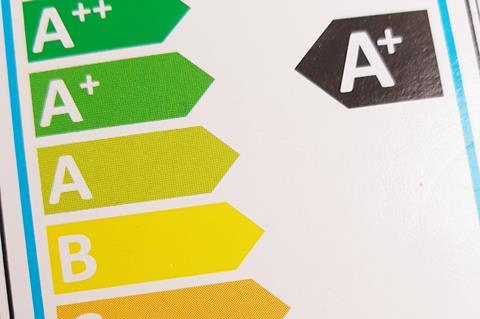Sustainability for Housing chair hails ‘coming of age’ for ESG reporting
More than three quarters (76%) of homes provided by housing associations achieved an EPC C rating or better in 2024, according to the latest report from Sustainability for Housing (SfH).

This figure is higher than the wider housing market, where around 48% of properties meet EPC C or above, as indicated by the most recent English Housing Survey.
SfH’s annual Sustainability Reporting Standard for Social Housing (SRS) found that several housing associations reported more than 80% of homes at EPC C and above, including Bromford (89%), Orbit (85%), Aster (84%) and A2Dominion (81%).
The report is based on data from 91 housing providers managing around 1.9 million homes across England, Scotland and Wales. Of the 35,800 new homes they delivered in 2024, 99.7% were built to EPC C standards or higher.
The research also shows that the overall proportion of new homes achieving EPC A has risen from 2.1% in 2022 to 9.5% in 2024.
The SRS was co-produced with data and insights company Housemark, which estimated that around 100,000 UK homes were improved to meet EPC C or higher in 2023/24. This means it would take another 13-14 years to move all social homes to this standard.
Piers Williamson, chair of SfH, said: “This year’s report demonstrates that despite all the political noise and suggestions of businesses rowing back on sustainability and social responsibility, the social housing sector remains committed to an environmentally, socially and economically sustainable future.
“It’s also somewhat of a ‘coming of age’ for ESG in housing and for the SRS, as this year moves ESG reporting from a snapshot of data to a series that enables analysis of trend data across a number of SRS criteria, which in turn enables a whole range of stakeholders to see progress, performance and outcomes in a consistent and comparable way.
>>See also: Why most new homes are still being built to old standards
“We know there are multiple challenges and financial pressures bearing down on housing associations and their residents – but we also know that sustainability is about the wellbeing of people living in social housing, as much as it is about the climate emergency.”
The SRS was launched in 2020 in response to concerns that environmental, social, and governance (ESG) investment in social housing was being held back by the absence of a sustainable reporting standard for social landlords. The SRS is a voluntary framework covering 48 ESG considerations including affordability, safety standards and zero carbon targets.











No comments yet